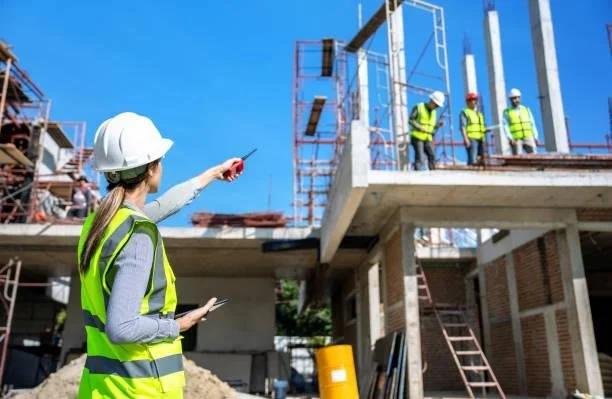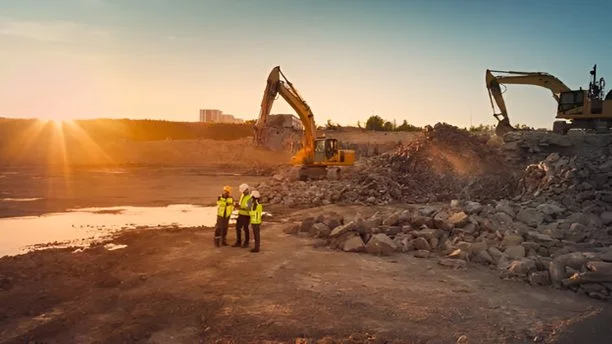Special Inspections During Construction: What Owners Need to Know
Avoiding Costly Mistakes Starts Here
When starting a commercial construction project, one of the most critical, and often overlooked, steps is ensuring compliance through special inspections. These inspections aren’t just another checkbox; they are legally mandated processes outlined by the International Building Code (IBC), designed to protect owners from serious issues such as structural failure, legal liability, and costly rework.
Special inspections focus on high-risk elements that standard inspections may miss. By proactively integrating these checks into your project timeline, you not only protect the integrity of your structure but also stay ahead of compliance hurdles.
This is where Exactus Engineering comes in. As a trusted inspection partner, Exactus provides third-party, code-compliant oversight tailored for commercial projects. Our experienced team helps clients navigate complex regulations, reduce risk, and ensure every detail meets engineering standards from the ground up.
What Counts as a Special Inspection?
The term "special inspection" refers to specific quality assurance measures required by the IBC for critical construction components. These go far beyond routine municipal inspections. A special inspector is a third-party professional who examines structure and materials while construction takes place in major build phases.
Special inspections are necessary by law if specific high-risk items are present in a project. When dealing with reinforced concrete, welding steel or applying spray-applied fireproofing, the installation has to get a certification from a specialist. The presence of an outside expert makes sure that the work meets the design set by the engineer.
On a commercial jobsite, this might mean checking:
The torque on high-strength bolts in a steel frame
Concrete slump and cylinder tests during pour days
Proper installation of seismic reinforcements
These aren’t mere formalities—they’re legally binding safeguards that can determine whether a project receives its certificate of occupancy or faces months of delay.
Where Special Inspections Apply on a Project
To better understand the scope of special inspections, it helps to break down where and when they apply. Key components typically requiring oversight include:
Steel Welding and Bolting: Ensures structural stability by confirming proper weld bead quality and torque levels on bolts.
Concrete Strength Testing: Verifies the mix design, curing conditions, and compressive strength to meet load-bearing requirements.
Soil Compaction and Bearing Preparation: Confirms subgrade quality for foundation support.
Masonry Inspection: Check the type of mortar used, how the grout is hung and whether the reinforcement meets the chosen design.
Spray-Applied Fireproofing: Using the spray method, the coating’s thickness, stickiness and coverage against fire are reviewed.
Seismic Resistance Components: Meets all requirements for an earthquake's lateral force-resisting system.
If you don’t inspect the unit, you may face structural cracks, sagging floors, and important systems failing. The sooner these risks are noticed, the less risky and less expensive the solutions will be. Thanks to Exactus Engineering, owners are confident that all vital components are checked and signed off by those qualified in the industry.
For insights into how these inspections integrate into broader commercial project planning, explore our dedicated service offerings.
Why Cities Require a Statement of Special Inspections (SSI)
Almost all municipalities require that a Statement of Special Inspections (SSI) be presented and approved before they will provide the necessary permits. This document defines what inspections are necessary on the project, which agency is responsible, and who will be expected to write inspection reports.
Failing to file a complete SSI can derail your permitting process entirely. Municipalities use this form to verify that owners have committed to proper oversight of critical construction elements—without it, a final certificate of occupancy is out of reach.
At Exactus Engineering, we simplify this crucial first step. Our planning team cooperates with owners, architects, and contractors to finish and deliver an SSI that is up to code. We make sure that all planned inspections are marked correctly and that paperwork matches local standards. This streamlines approvals and sets your project on the right path from day one.
Need guidance with your SSI? Connect with our team via our commercial services division.
The Engineer’s Role in Verifying Work Quality
While contractors build the structure, the structural engineer is there to check that everything follows both the original plan and all necessary construction guidelines. Their task is critical for your investment and keeping the project strong.
Engineers are present at important stages of construction and handle a range of tasks.
Ensuring the placement and type of reinforcement have been checked before any concrete is poured
Checking welding quality and bolt torque for structural steel
Overseeing soil compaction and foundation prep to confirm bearing capacity
They also review material test results, approve corrective actions when deficiencies arise, and maintain detailed records of all inspections performed.
Simply put, engineers represent the owner’s interest. They serve as independent authorities who report findings transparently and without influence from contractors. This objective oversight is essential to avoid liability, prevent delays, and maintain compliance.
Learn more about our structural engineering services and how they contribute to successful project delivery.
What Happens When Issues Are Found
Even with thorough planning, construction issues can arise, but how these issues are handled makes all the difference. Special inspections are designed not only to catch problems early but also to guide efficient resolution.
When a special inspector identifies a defect or deviation from the approved design, it’s formally documented in an inspection report. This report outlines:
The nature of the issue
The location and scope
Required corrective action
In many cases, work must pause until the problem is addressed. However, this pause is far shorter—and far less costly—than correcting issues discovered after completion.
Re-inspections follow once corrections are made, verifying that the fix meets code and design standards. This loop of discovery and verification ensures accountability across the construction team.
At Exactus Engineering, we approach every inspection with clarity and precision. Our reports are detailed yet easy to understand, providing builders with a clear path to compliance and reducing the risk of rework delays.
Special Inspections Timeline: When to Schedule What
A successful inspection strategy is all about timing. Many inspection requirements are triggered by specific construction milestones, and missing these windows can result in costly do-overs.
Here’s a breakdown of key points where special inspections are typically required:
Before concrete is poured: Inspect reinforcement placement and formwork.
Post-welding or bolting: Confirm structural connections meet standards.
Before backfilling: Validate soil compaction and subgrade prep.
Before applying fireproofing: Assess substrate condition and environment.
Throughout masonry and seismic system installation: Check grouting, anchorage, and reinforcement.
Contractors and owners should integrate these checkpoints into their project schedule to prevent disruptions.
Exactus Engineering supports this process by providing pre-scheduling guidance and flexible site visit coordination. Our proactive approach means we’re there when you need us, ensuring no critical step is missed.
Need help aligning inspections with your build timeline? Visit our commercial project planning page for expert guidance.
How to Choose a Qualified Inspection Agency
When selecting a special inspection agency, experience and credentials matter. Your partner should not only understand the technical requirements of each inspection type but also be fluent in local permitting processes and building code enforcement.
Here are key qualifications to look for:
ICC Certifications: Inspectors should hold International Code Council certifications relevant to the tasks at hand.
Licensed Professional Engineers (PEs): Look for agencies that employ or are managed by state-licensed engineers.
Proven Local Experience: Familiarity with local building departments can expedite approvals and avoid administrative pitfalls.
Clear Reporting Standards: Ask to review sample reports—are they readable, actionable, and timely?
Exactus Engineering checks all these boxes and more. Our seasoned inspectors and engineers are certified, licensed, and equipped with digital reporting tools that accelerate communication and resolution. We’re also well-versed in the requirements of various jurisdictions across the region.
How Exactus Streamlines Special Inspections
Our clients count on us to keep their projects moving. From the earliest stages of planning to the final sign-off, Exactus Engineering integrates seamlessly into your workflow:
Coordination with Contractors: We proactively schedule inspections with your GC and subs to minimize delays.
Prompt Field Reporting: Our team issues detailed reports quickly, often same day, ensuring decisions can be made without hesitation.
Compliance-Driven Documentation: Everything we produce meets the exacting standards of code officials and plan reviewers.
Whether you're a private developer or a public agency, our goal is the same: to simplify compliance and protect your investment.
Stay Code-Compliant Without Surprises
Cutting corners on inspections might seem like a shortcut, but it often leads to major delays, cost overruns, and even legal exposure. With Exactus Engineering as your partner, you gain not just inspection services but peace of mind.
We help clients navigate every stage of special inspections, from SSI preparation and onsite verification to final reporting. Our team ensures that every component is safe, code-compliant, and ready for occupancy.
Don’t wait until an inspector finds a problem. Let’s build it right from the start. Book a pre-construction consultation or request help with your Statement of Special Inspections today.




